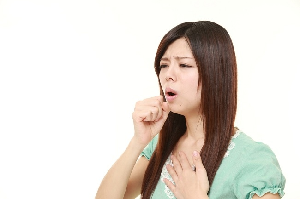
Holly R. Keir, James D. Chalmers
European Respiratory Journal 2021 58: 2102143; DOI: 10.1183/13993003.02143-2021
Extract
COPD is characterised by neutrophilic inflammation in the majority of patients [1–3]. Neutrophils represent a key second line of defence against infection and are rapidly recruited to the airway if pathogens are able to evade first line defences, which include mucociliary clearance and resident immune cells such as macrophages [3]. Neutrophils typically clear infection through ingestion of invading microbes (phagocytosis) and through the internal generation of reactive oxygen species, serine proteases such as neutrophil elastase, cathepsin G and proteinase-3, and antimicrobial proteins [4]. These processes aim to clear infection without damage to host tissues, but in COPD there is a failure of these normal antimicrobial processes. Mucociliary clearance is impaired, macrophage phagocytosis is less effective, and pro-inflammatory cytokines signal recruitment and survival of neutrophils which fail to effectively kill bacteria, leading to chronic neutrophilic inflammation and chronic infection [3–6]. Recent data suggests that a distinct form of neutrophil behaviour in which neutrophils release a DNA scaffold decorated with granule proteins (such as proteases) and termed neutrophil extracellular trap (NET) formation is associated with worse symptoms, frequent exacerbations and lung infections in a subset of patients [7–9]. The precise drivers and implications of NETosis in COPD are, however, unclear.
Haemophilus infection in COPD induces neutrophil extracellular traps which amplify inflammation through multiple mechanisms, including NET mediated IL-6 trans-signalling https://bit.ly/3yFI2b7
Footnotes
-
Conflict of interest: H.R. Keir has nothing to disclose.
-
Conflict of interest: J.D. Chalmers reports grants and personal fees from AstraZeneca, Boehringer Ingelheim, Insmed, Novartis and GlaxoSmithKline, personal fees from Chiesi, Janssen, Grifols and Zambon, grants from Gilead Sciences, outside the submitted work.
- Received August 2, 2021.
- Accepted August 6, 2021.
- Copyright ©The authors 2021. For reproduction rights and permissions contact permissions@ersnet.org














